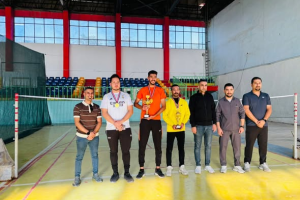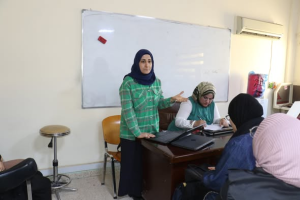
A forward-looking reading
Director of Media Studies at Diyala University crosses the threshold into new media… A forward-looking reading that reshapes ethical legislation in the metaverse press
The proceedings of the sixth international and eighteenth annual conference of the Faculty of Media at the University of Baghdad witnessed a distinguished scientific and media contribution by Assistant Professor Dr. Laith Abdul Sattar Ayada, Director of the Media and Government Communication Division at the Faculty of Basic Education at the University of Diyala, The conference was held under the slogan ‘Media between Legislation and Professional Ethics’ in collaboration with the Faculty of Law, from 19 to 20 November 2025, with broad participation from local and international universities and colleges specialising in media and communication sciences.
Dr. Laith Abdul Sattar participated by presenting his scientific research entitled:
‘Ethical Legislation in Iraqi Electronic Journalism Regulating Freedom of Opinion and Expression in Metaverse Journalism – A Prospective Study.’
The aim of the research was to monitor future developments in ethical controls and legislation regulating freedom of opinion and expression in the Metaverse press, to reveal points of failure and paths of development, and to identify the features of the future environment for journalistic work, especially among academics and practitioners. The research also presents future scenarios for ethical and legal regulations governing freedom of opinion and expression in the metaverse press during the decade (2025–2035).
For his part, the Dean of the Faculty of Basic Education, Assistant Professor Dr. Ayman Abdul Aoun, praised this distinguished scientific participation, appreciating the active role of the Director of the Media Division in promoting the faculty’s presence in international and local scientific forums. He emphasised that these research contributions reflect the level of scientific competence and development efforts in the field of media and government communication within the faculty.
This participation is in line with the seventeen sustainable development goals, particularly goal four: quality education, and goal sixteen: peace, justice and strong institutions, through supporting specialised scientific research, strengthening media legislation, and establishing ethical values in the modern communication environment.


![]()



